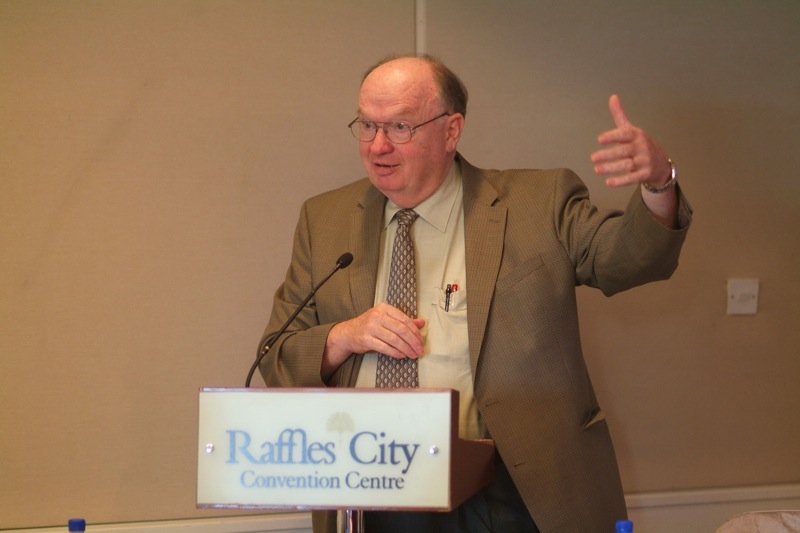 |
| via wave design coop / Wikipedia |
I'd met Ian MacPherson through the CCCBE (the Centre for Co-operative and Community-Based Economies), a centre he had founded in 2000. Dr. MacPherson was what we now call an engaged academic; that is, his time was not spent only in the classroom or doing research, but also out in the world. He helped found and/or lead several co-ops across Canada; ranging from child care and health co-ops, to sitting on the boards of Pacific Coast Savings and the BC Central Credit Union. He was also the founding President of the Canadian Co-operative Association in 1989.
At the celebration for Dr. MacPherson, one of the speakers rose and opened with the phrase "Dr. MacPherson changed my life." He then talked about how, as a young academic, he'd been introduced to the co-operative movement; "And I said, wait a minute. You mean there's a practical alternative that eliminates the worst excesses of neo-liberal capitalism? Why is this the first I'm hearing about this?" Well, exactly.
The modern co-operative principles, which Dr. MacPherson had a hand in drafting, are fairly straightforward. The ICA website defines a co-op as:
... an autonomous association of persons united voluntarily to meet their common economic, social, and cultural needs and aspirations through a jointly-owned and democratically-controlled enterprise.Which sounds simple. But there are a series of principles that go with this reasonably clear definition.
- Voluntary and open membership
- Democratic member control
- Economic participation by members
- Autonomy and independence
- Education, training and information
- Cooperation among cooperatives
- Concern for community
Notice how there's nothing about turning a profit? Or protecting shareholder value? This is not to say that co-operatives do not turn a profit. Many do, but profit is not the primary goal. From all appearances, being a social good seems to take precedence over profit.
I should come clean here. I first became a co-op member back when we moved to the farm outside Legal, Alberta. Legal had faced the closing of its only food store some years earlier--which likely would have led to the closing of the town not long afterwards. But instead the local supermarket was converted to a not-for-profit co-operative, where the goal was to break even while making sure the town had a store.
When we moved back to Victoria, we also became members of the Victoria Car Share Co-op, and, when they finally opened a store here, Mountain Equipment Co-op as well.
What has this all got to do with food security? Well, farmer's co-ops are quite widespread--at least here in Canada. One of the large ones is the UFA: created in 1909 as United Farmers of Alberta, UFA now has a network of more than 110 petroleum outlets, 35 retail stores, four fertilizer plants and an agriculture construction division. A Brief on behalf of Canadian Agricultural Cooperatives [.pdf] and submitted to the House of Commons Standing Committee on Finance points out:
Cooperatives are important players in the agri-food business. There are 1,300 agricultural cooperatives in Canada that employ over 36,000 people and generate over $19 billion per year in revenue.And among these are:
Peace Country Tender Beef Co-op (PCTBC). In development for the past two years, it was founded in March 2004 to respond to the hegemony of three slaughterhouses belonging to multinational corporations that dominate the Canadian market. The mad cow crisis was in fact a catalyst for this project that joins together 600 producers. The goal is to sell beef that has been raised free of hormones, medicated feed and animal proteins. [...] This ecological approach will also be used to promote the marketability of meat that can be traced directly from the producer to the consumer. Ground meat sold on supermarket shelves will have been made from a single animal.The Alberta government under Ralph Klein (whose response to the discovery of BSE in Alberta was that the producer in question should just "shoot, shovel, and shut up.") was not happy with this proposal. They also wanted to test every animal for BSE before shipping, and the Klein government really didn't want them doing that.
The co-operative movement provides an excellent model for food security going forward. You don't actually have to do everything yourself--you can be part of a similarly-motivated community. And community is what is most important for anyone interested in growing food. Time was, the rural world was one of community, but those communities have been atomized over the last three or four generations. Ideas about sustainability and organic production have been difficult to communicate to a lot of industrial scale producers (although this may be changing. And, as always, we are stronger together than we are apart. Occupy the food chain.
No comments:
Post a Comment